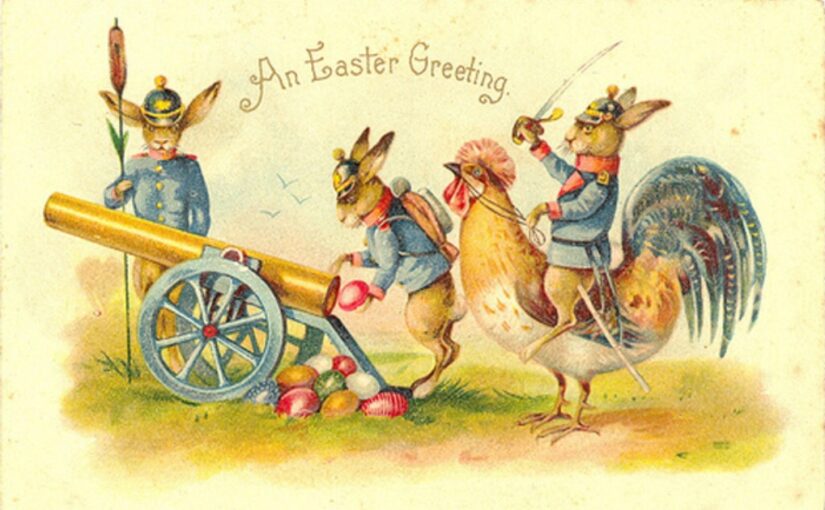It’s that day again when we look forward to new life, to warmer weather, to flowers blooming and sun shining. Easter Day is always special, and for the Brontës of Haworth it must have been especially so. Easter was celebrated then even more so than it is now, and throughout this post you’ll see examples of Victorian era Easter cards. As regular readers of my blog will know, Victorian cards could be a little strange – to say the least!
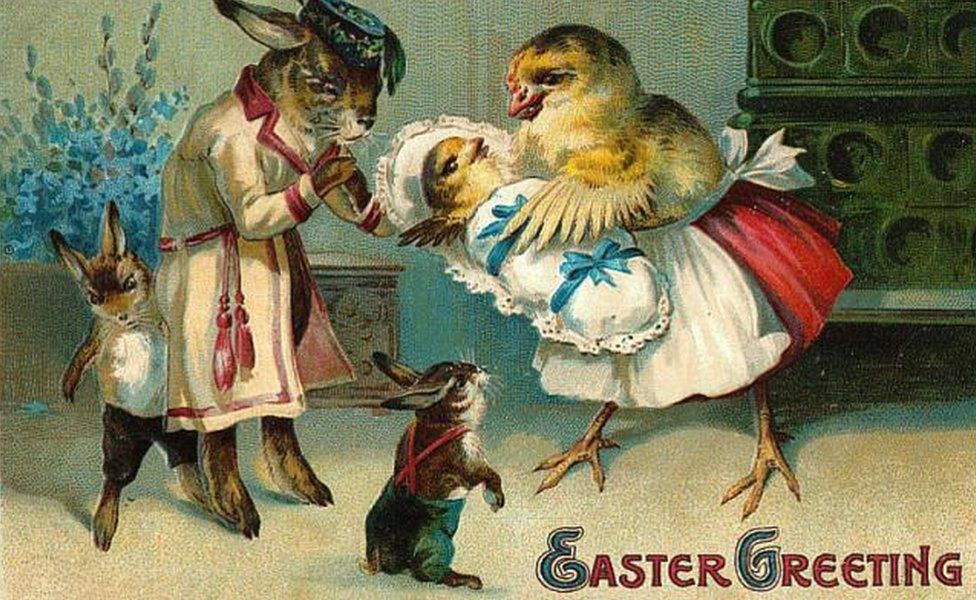
The Brontë siblings held an exalted position within their parish – as daughters of the priest Patrick Brontë they had their own pew at the front of the church where their father preached. In later years Branwell Brontë played the church organ, and the three writing Brontë sisters, Charlotte, Emily and Anne, taught at the Church of England Sunday school founded by their father.
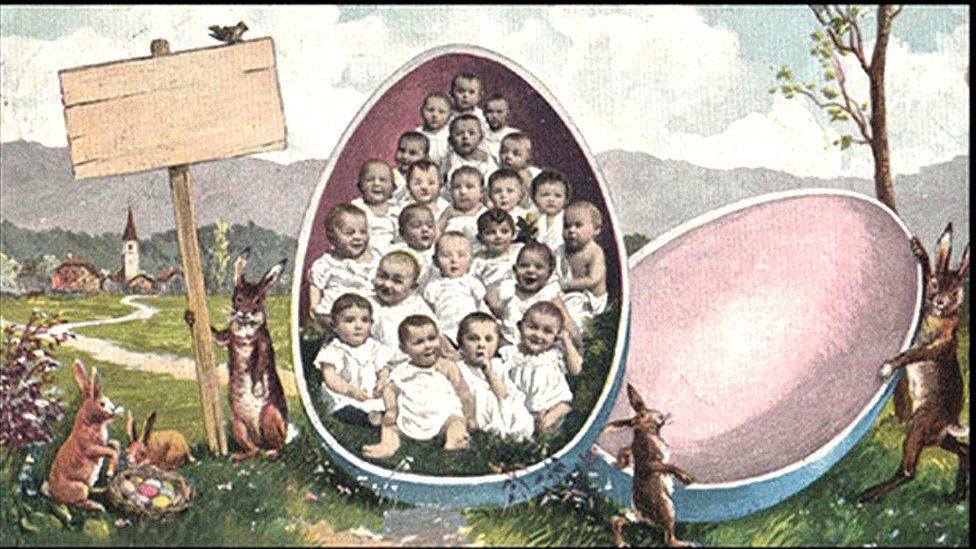
The girls were representatives of their father in a way, but all had different attitudes towards religion and faith which affected the way they lived and which would later reveal itself in their writing too. It is this fascinating subject which forms the heart of a talk I’ll be presenting to the Brussels Brontë Group on Saturday May 10th.
The talk is called “Doubt, Defiance and Devotion: Faith And The Brontë Sisters”, and I’m very excited to be addressing an international group of Brontë fans in the city where Charlotte and Emily Brontë attended the Pensionnat Heger school. I’ll be following the Brontë trail around the city too, so look out for a future post on that subject.
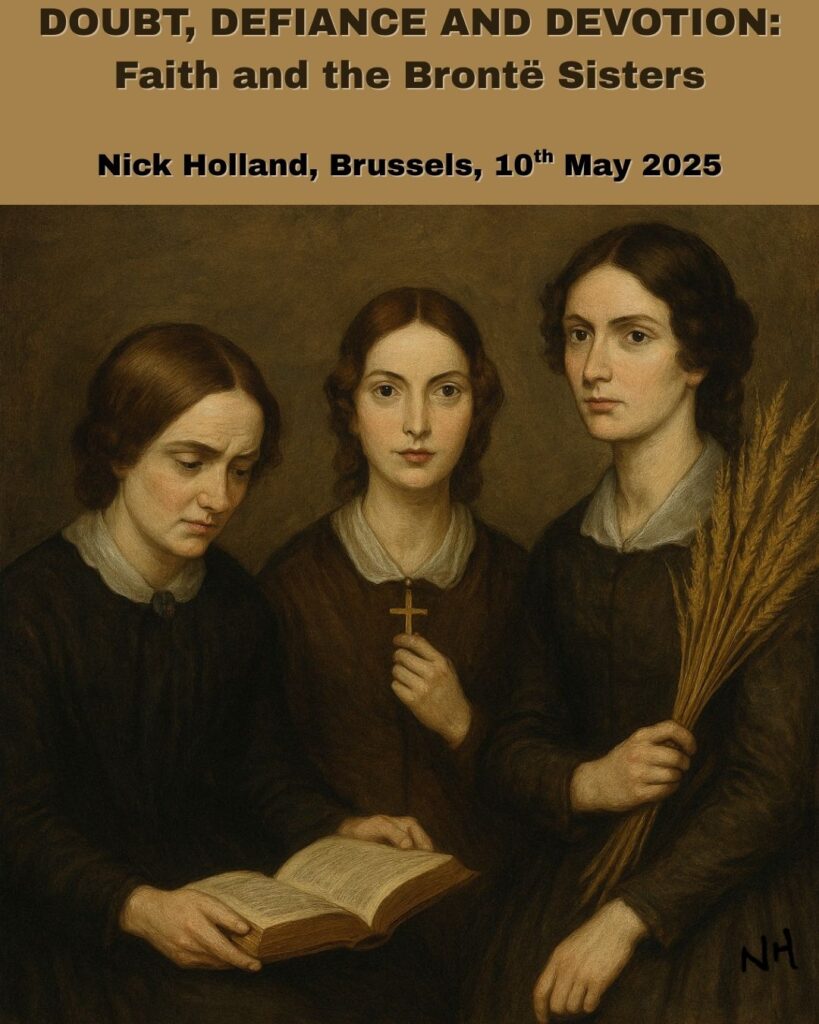
Today was a very special day in the Brontë story in 1820 for a non-Easter related reason; it was on this day exactly 205 years ago that Patrick Brontë, his wife Maria (whose birthday occurred on this week in 1783) and his young family moved from Thornton to his new parish of Haworth. No doubt Maria would have cradled little baby Anne Brontë, just three months old, throughout their journey across the moors.
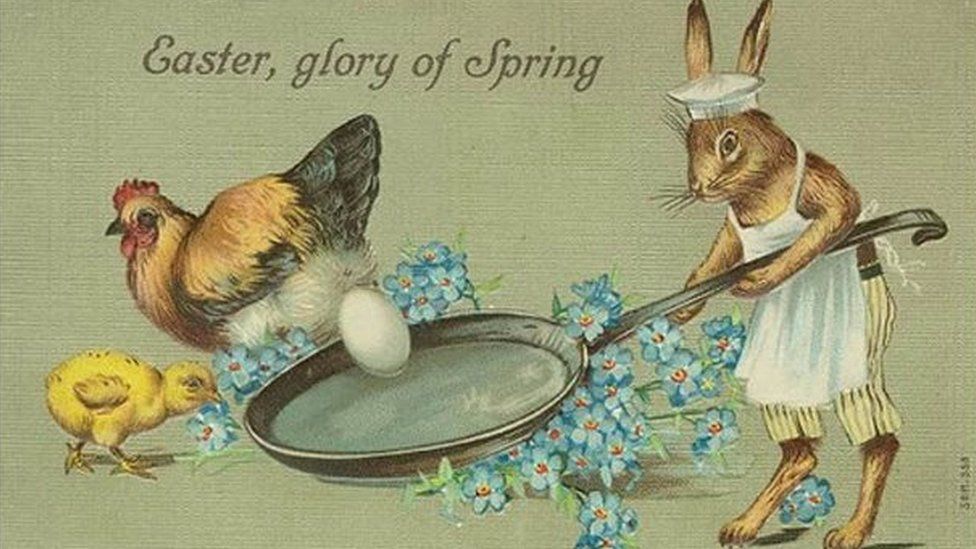
You may have already seen the great news, but I’m delighted to share it again, that the Brontë Birthplace in Thornton is now ready to open to the public – you can make a booking for a guided tour via their website at https://Brontëbirthplace.com/guided-tours/
Let us now have an Easter extract from Anne Brontë’s brilliant debut novel Agnes Grey:
‘“Agnes, this sea air and change of scene do you no good, I think: I never saw you look so wretched. It must be that you sit too much, and allow the cares of the schoolroom to worry you. You must learn to take things easy, and to be more active and cheerful; you must take exercise whenever you can get it, and leave the most tiresome duties to me: they will only serve to exercise my patience, and, perhaps, try my temper a little.”
So said my mother, as we sat at work one morning during the Easter holidays. I assured her that my employments were not at all oppressive; that I was well; or, if there was anything amiss, it would be gone as soon as the trying months of spring were over: when summer came I should be as strong and hearty as she could wish to see me: but inwardly her observation startled me. I knew my strength was declining, my appetite had failed, and I was grown listless and desponding; – and if, indeed, he could never care for me, and I could never see him more – if I was forbidden to minister to his happiness – forbidden, for ever, to taste the joys of love, to bless, and to be blessed – then, life must be a burden, and if my heavenly Father would call me away, I should be glad to rest. But it would not do to die and leave my mother. Selfish, unworthy daughter, to forget her for a moment! Was not her happiness committed in a great measure to my charge? – and the welfare of our young pupils too? Should I shrink from the work that God had set before me, because it was not fitted to my taste? Did not He know best what I should do, and where I ought to labour? – and should I long to quit His service before I had finished my task, and expect to enter into His rest without having laboured to earn it? “No; by His help I will arise and address myself diligently to my appointed duty. If happiness in this world is not for me, I will endeavour to promote the welfare of those around me, and my reward shall be hereafter.” So said I in my heart; and from that hour I only permitted my thoughts to wander to Edward Weston – or at least to dwell upon him now and then -as a treat for rare occasions: and, whether it was really the approach of summer or the effect of these good resolutions, or the lapse of time, or all together, tranquillity of mind was soon restored; and bodily health and vigour began likewise, slowly, but surely, to return.’
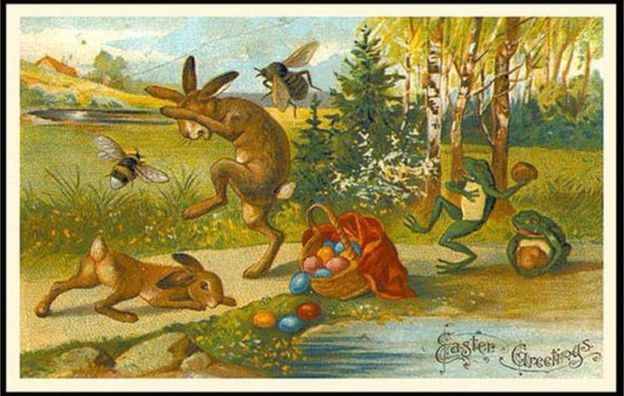
Tomorrow is another day of celebration, not just because it’s a bank holiday but because it’s the 209th anniversary of the birth of Charlotte Brontë. Happy birthday Charlotte, and may I wish you all, whatever your faith, a very happy, loving and peaceful Easter. I hope to see you next week for another new Brontë blog post.
